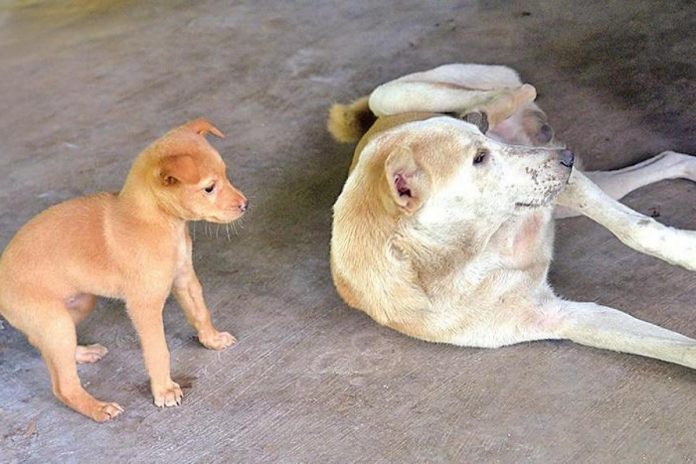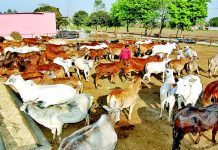This article is written by Raslin Saluja from KIIT School of Law, Bhubaneswar. The article lists down animal rights that every Indian should know and the steps and measures that can be taken to further enhance animal protection.
Table of Contents
Introduction
Being the seventh-largest country in the world, India comprises four vast bio-diverse regions out of the 36 biodiversity hotspots in the world. Over the years, animal welfare and protection laws have taken a prominent position, giving India some of the finest provisions of animal safeguarding laws.
Animal laws and the Constitution of India
The Directive Principle of State Policy under Article 48A directs the Constitutional duty of every Indian citizen to preserve and safeguard the natural environment, including forests, rivers, lakes, and wildlife, and to treat all living creatures properly. The state derives its duty to attempt and try to enhance the quality of the environment and to protect the flora and fauna of the country from Article 48A. Both these provisions were introduced by the 42nd Amendment in 1976 for shaping and guiding the law of animal protection at the Central and State levels. As a result, legislation like the Prevention of Cruelty to Animals Act, 1960 and the Wildlife (Protection) Act, 1972 prevail at the Centre, and a special focus on cattle protection and cow slaughter prohibition exists at the State under Article 48. Item 14 of the State List provides that the States have the power to “preserve, protect and improve stock and prevent animal diseases and enforce veterinary training and practice.”
As for the Concurrent List, both the Centre and the States hold the power to legislate on:
- Item 17: “Prevention of cruelty to animals.”
- Item 17B: “Protection of wild animals and birds.”
Cruelty against animals is also a cognizable offence under Section 428 and Section 429 of the Indian Penal Code, 1860. Animal laws exist to ensure that animals are not ill-treated and get safe and secure surroundings around them. While many laws have been enacted to safeguard animals, many people may be unaware of animal rights.
The Wildlife Protection Act, 1972
This Act was enacted in 1972 to safeguard the wildlife of the nation and to have control over illegal activities of poaching, smuggling and trade in wildlife and its derivatives. In 2003, it was amended and stringent punishments and penalties were introduced to strengthen the impact of the Act.
A few animals rights under the Act are:
-
As per Section 9, capturing, trapping, poisoning or baiting or trying to do so to any wild animal, constitutes hunting and attracts a punishment of up to Rs. 25,000 as monetary fine or jail sentence of up to seven years or in certain cases, both.
- Under Section 2(16)(c), it is against the law to/attempt to injure, harm, destroy wild birds or reptiles, or damage/disturb their eggs or their nests, which would constitute an offence and such person shall be fined up to Rs. 25,000 and a jail sentence of three to seven years.
- According to Section 38J, teasing, feeding or disturbing the animals by noise in a zoo or otherwise and littering the zoo premises shall constitute an offence under Section 51(1B), which attracts imprisonment that may extend up to six months, or with a fine which may extend to Rs. 2000, or with both. Further, in case of a subsequent offence, the term of imprisonment may extend to 1 year, or with a fine which may extend to Rs. 5000.
Prevention of Cruelty Act, 1960
This Act aims to protect the animals and prevent them from suffering needless pain and modify the laws relating to the prevention of cruelty to animals. According to the Act, an animal is defined as any living creature other than a human being. Further, the Animal Welfare Board of India (AWBI), established under Chapter II of the Act by the Government of India, has the following functions:
- It advises the government at the centre for making modifications and rules to prevent the infliction of unnecessary harm/pain to animals while transporting them, or while conducting experiments on animals or storing animals in captivity.
- It encourages and extends financial assistance for arranging rescue homes and animal shelters for old animals.
- It advises the government on extending medical care and regulations for animal hospitals.
- It imparts education and awareness on the humane treatment of animals.
- It advises the central government regarding general matters of animal welfare.
Most of the animal protection rights against cruelty are under Section 11 of the Act, wherein cruelty to animals has been enumerated in different variants as the following actions:
- Any animal who is beaten, kicked, overridden, overloaded, tortured, mistreated and caused unnecessary pain with the permission of its owner, if exists.
- An old or injured or unfit animal due to infirmity, wound, sore or age who is used for work/labour (the owner, as well as the user both, are held accountable).
- Any animal who is administered an injurious drug/medicine.
- An animal that is painfully carried through a vehicle, causing discomfort. This, in addition to Section 98 of the Transport of Animals Rules, 1978, prohibits the transportation of any animal that is diseased, fatigued or unfit for transport. Furthermore, separate transportation arrangements should be made for pregnant and very young animals.
- An animal who is kept in a cage and not allowed a reasonable opportunity of movement or is chained (using heavy or short-chain) for an unreasonable period for no good purpose/reason or is habitually confined with no reasonable option to move will be punishable by a fine or imprisonment of up to 3 months or both.
- An animal who is not provided with sufficient food, water or shelter by its owner, wherein the owner can be fined up to Rs. 50 and if a similar crime is committed within three years of the first one, he will be fined between Rs. 25 to Rs. 100.
- An animal who is abandoned without reasonable cause, leaving it in a situation to suffer pain due to starvation/thirst – such an offence attracts a fine which can extend up to Rs. 50 and if it is committed again within three years, the fine can be between Rs. 25 to Rs. 100/ imprisonment up to three months or more.
- An animal who has an owner and has been left wilfully by them to roam the streets or has been left on the streets to die of disease, old age or disability.
- An animal suffering from pain due to mutilation, starvation, thirst, overcrowding or other ill-treatment is offered for sale.
- Mutilating or killing animals in cruel manners, such as using strychnine injections. Killing, poisoning, maiming and torture are cognizable offences under Section 428 and 429 of IPC with rigorous imprisonment which may extend up to five years or a fine or both.
- Any animal when used as bait for another animal solely for entertainment or is incited for the same.
- Any animal whose owner is actively involved in organizing, keeping, using or managing any place for animal fighting or to bait any animal or allows or offers any place to be so used or receives money for the admission of any other person to any place kept or used.
- Shooting an animal when it is released from captivity for such a purpose.
However, when cattle are dehorned/castrated in the prescribed manner, stray dogs are destroyed in lethal chambers in a prescribed manner and any animal who is exterminated under the authority of law is not considered as cruelty under this Act.
Under Part IV of the Act, experimentation on animals is allowed under the central government’s committee set up for controlling and supervising such experiments conducted on animals, which also holds the power to prohibit experimentation if so necessary.
Punishment
It is an offence to treat animals cruelly which attracts a punishment of a monetary fine of Rs. 10, which may extend to Rs. 50 for being convicted the first time. On being convicted a second time within three years of the previous offence, he would be awarded a penalty of Rs. 25, which may extend to Rs. 100, or imprisonment which may extend up to three months, or both under Section 11[1(o)]. In cases where operations that can cause harm to the health of any animal like that of Phooka or any other if performed for bettering lactation, the government holds the power to act to benefit the animal and forfeit or seize the animal. Moreover, under Section 20, an act that is done in contravention of any order of the committee regarding experimentation on animals is punishable with a fine of up to Rs. 200.
Besides these rights, according to Animal Birth Control (Dogs) Rules, 2001, dogs that are not sterilised cannot be relocated from their area, though people can take action and inform the animal welfare organization to sterilise and vaccinate them. Similarly, in line with the 2001 Rules, under Section 38 of the Prevention of Cruelty to Animals Act, 1960, sterilization of dogs can only be done when they’ve attained the age of four months, and not earlier. Further, stray cattle (cows/buffaloes) cannot be claimed by anyone to sell; the person would first have to have to get proper documentation done to prove he is an agriculturist to sell/buy. Rules 148-C and 135-B of Drugs & Cosmetics (Fifth Amendment) Rules, 2014 ban any kind of cosmetics that are tested on animals and then are imported.
No other place except a slaughterhouse can be used for the slaughtering of animals, including chickens. Slaughtering of sick or pregnant animals is not allowed. No temple/street can slaughter animals if they are not licensed/prescribed to do so, according to the Local Municipal Corporation Acts, Rule 3 of Prevention of Cruelty to Animals, (Slaughterhouse) Rules, 2001, Chapter 4, Food Safety and Standards Regulations, 2011, Prevention of Cruelty to Animals Act, 1960, Wildlife (Protection) Act, 1972, and Indian Penal Code (IPC).
Steps for further enhancing the protection of animals
- Animals also have a right to live without fear or pain. The first step towards ensuring a cruelty-free environment for animals include education and awareness among the children to inculcate such virtues from a young age and for adults to make them more involved and compassionate towards animals.
- Banners and posters should be put up in all major areas of the town. Proper animal care programmes must be held for all the owners of the animals for basic necessities such as food, water, adequate shelter, and appropriate veterinary care.
- Cruelty reports must be taken more seriously. A police force, specialising in animal protection, should be actively working to keep crime against animals in check.
- Various government shelters, registered firms and NGOs must take care of providing food and shelter to stray animals to assure their safety.
- However, oftentimes, even pet shelters may not be safe for animals and therefore regular raids should be conducted against suspicious people operating under the guise of shelter providers or ‘rescuers’. These hoarders often fail to provide for animals’ physical and social needs, including food, water, veterinary care and sanitary living conditions.
- People should buy and promote cruelty-free products, donate to charities that take care of animals, and not experiment on animals. They should fund non-animal research.
- People need to step in and avoid entertainment events victimizing animals/promote animal-free circuses. More animal rights organizations must be formed.
- Animal festivals and competitive games must be banned. One such example is the Kila Raipur games organised in Punjab, in which a special breed of bullocks, camels, dogs, mules and other animals compete in various events.
- Various shelter homes should be established at the district level to treat and cater to mutilated animals’ needs. The handicapped ones shall be provided with shelters. The district centres should file reports against the tormentors and punitive measures that should be taken against the offenders. The youth must also be encouraged to join the profession of veterinary surgeons.
Conclusion
There is still a long way to go for the development of animal jurisprudence which was once started on a progressive note. The Cruelty Prevention Act in various ways provides a leeway that needs to change due to the diversity of religions and traditions in India. The punishments under the Act are not stringent/strict enough to make a deterrent impact. Extensive reforms are required with strict enforcement of the law to have stronger protection of animals in India, as has been suggested above.
References
- https://www.animallaw.info/article/overview-animal-laws-india
- https://www.tribuneindia.com/news/ludhiana/animals-too-have-the-right-to-live-without-pain-42939
- https://www.lawyered.in/legal-disrupt/articles/10-animal-rights-laws-every-indian-should-be-aware/
LawSikho has created a telegram group for exchanging legal knowledge, referrals, and various opportunities. You can click on this link and join:
 Serato DJ Crack 2025Serato DJ PRO Crack
Serato DJ Crack 2025Serato DJ PRO Crack











 Allow notifications
Allow notifications


